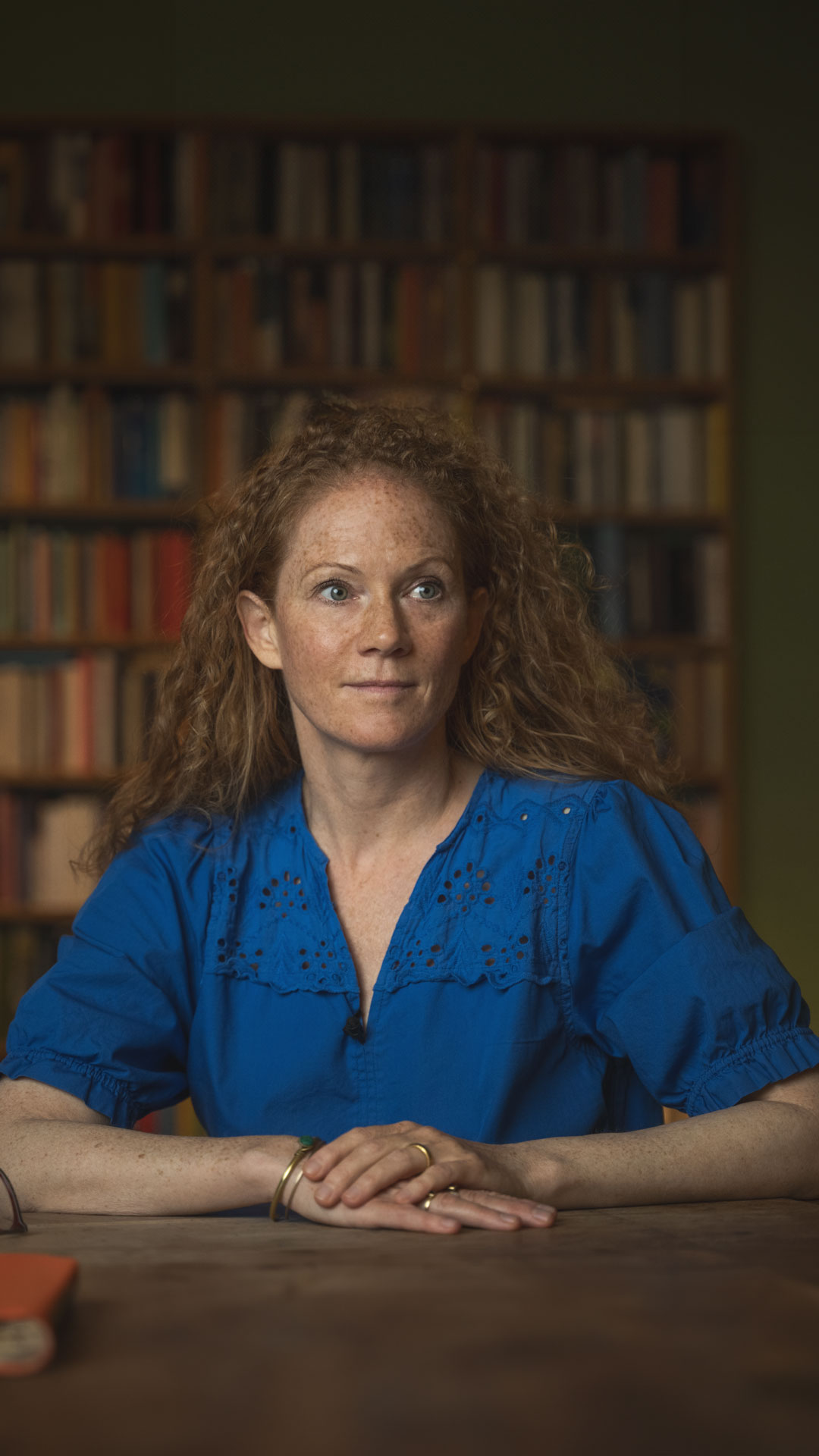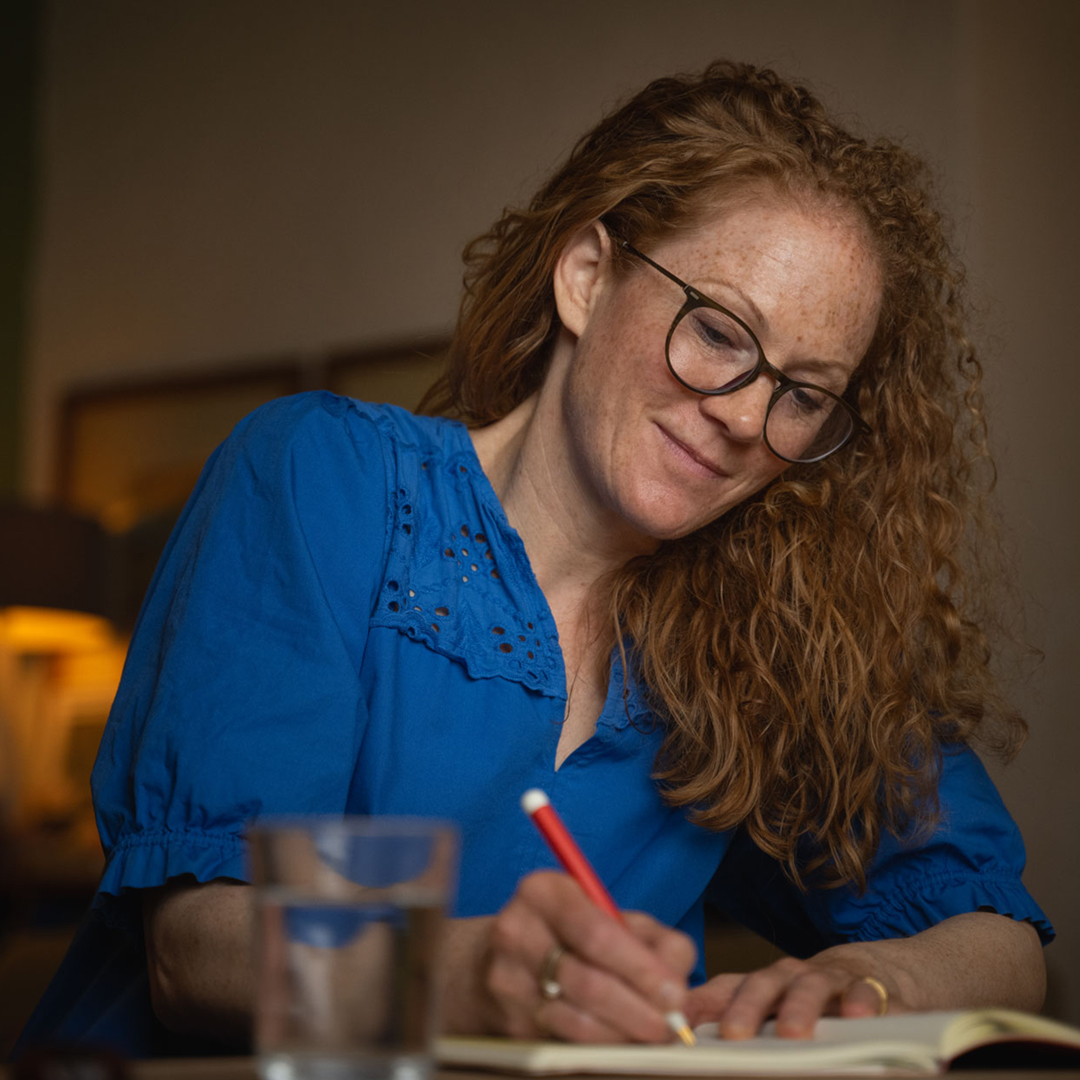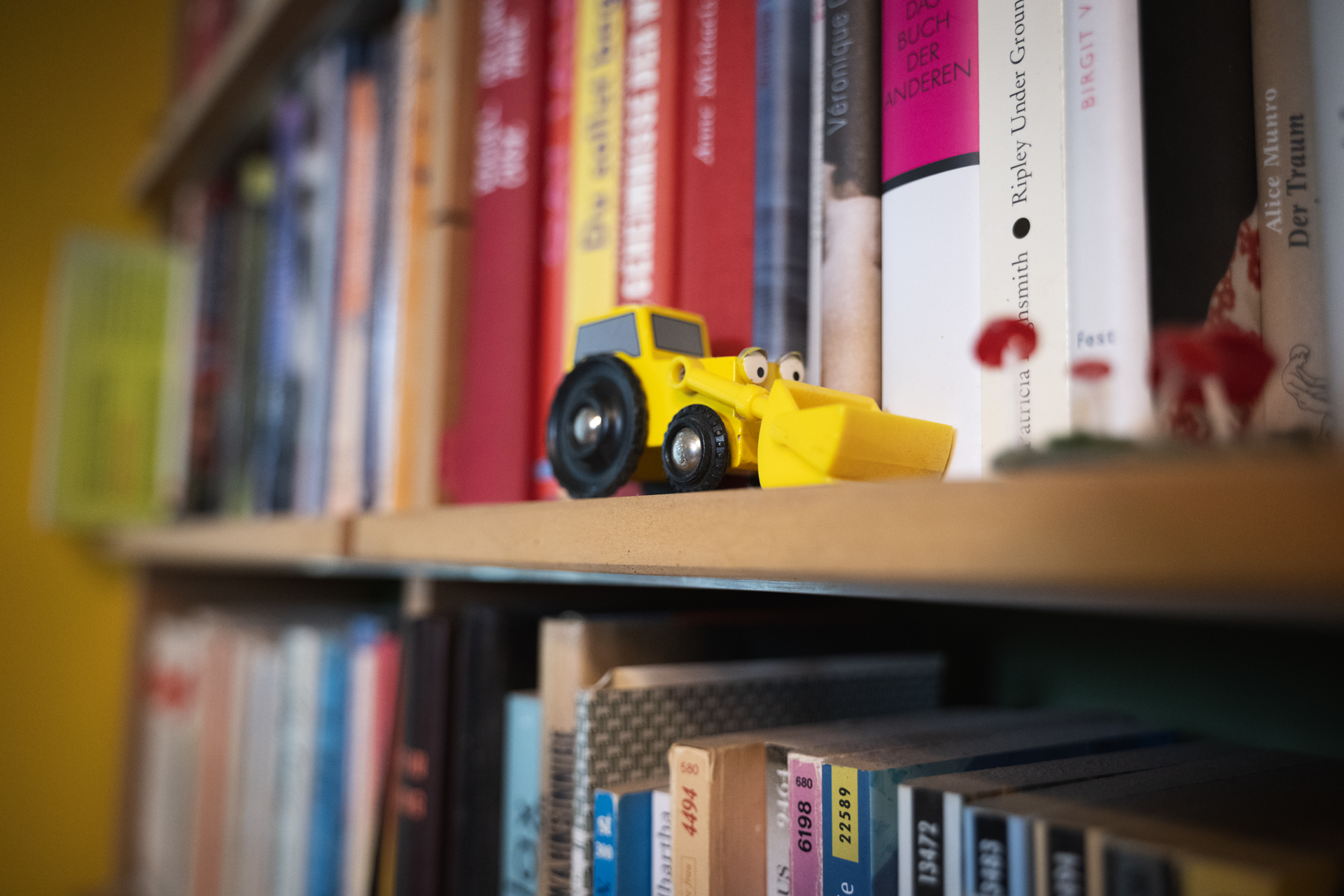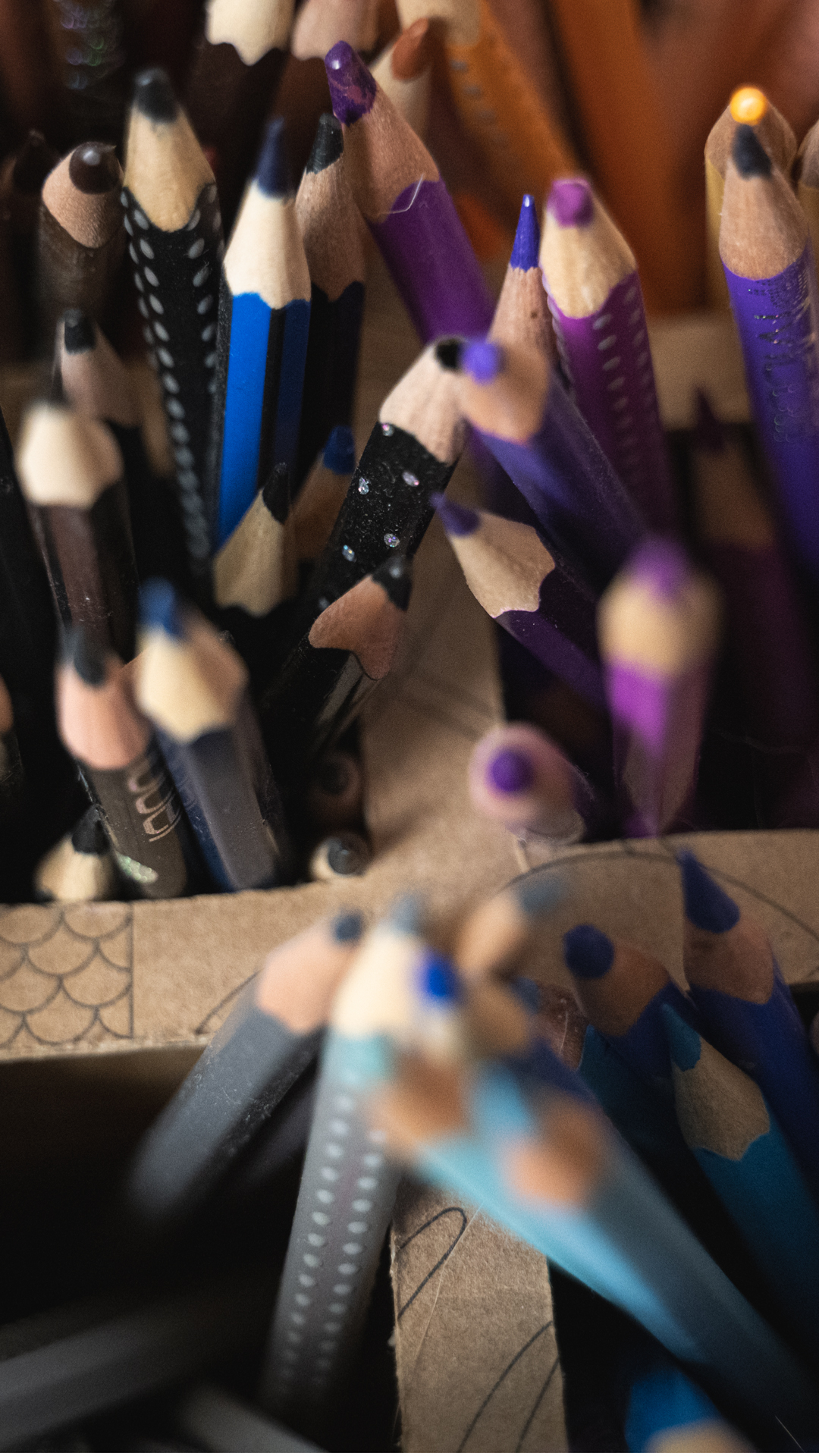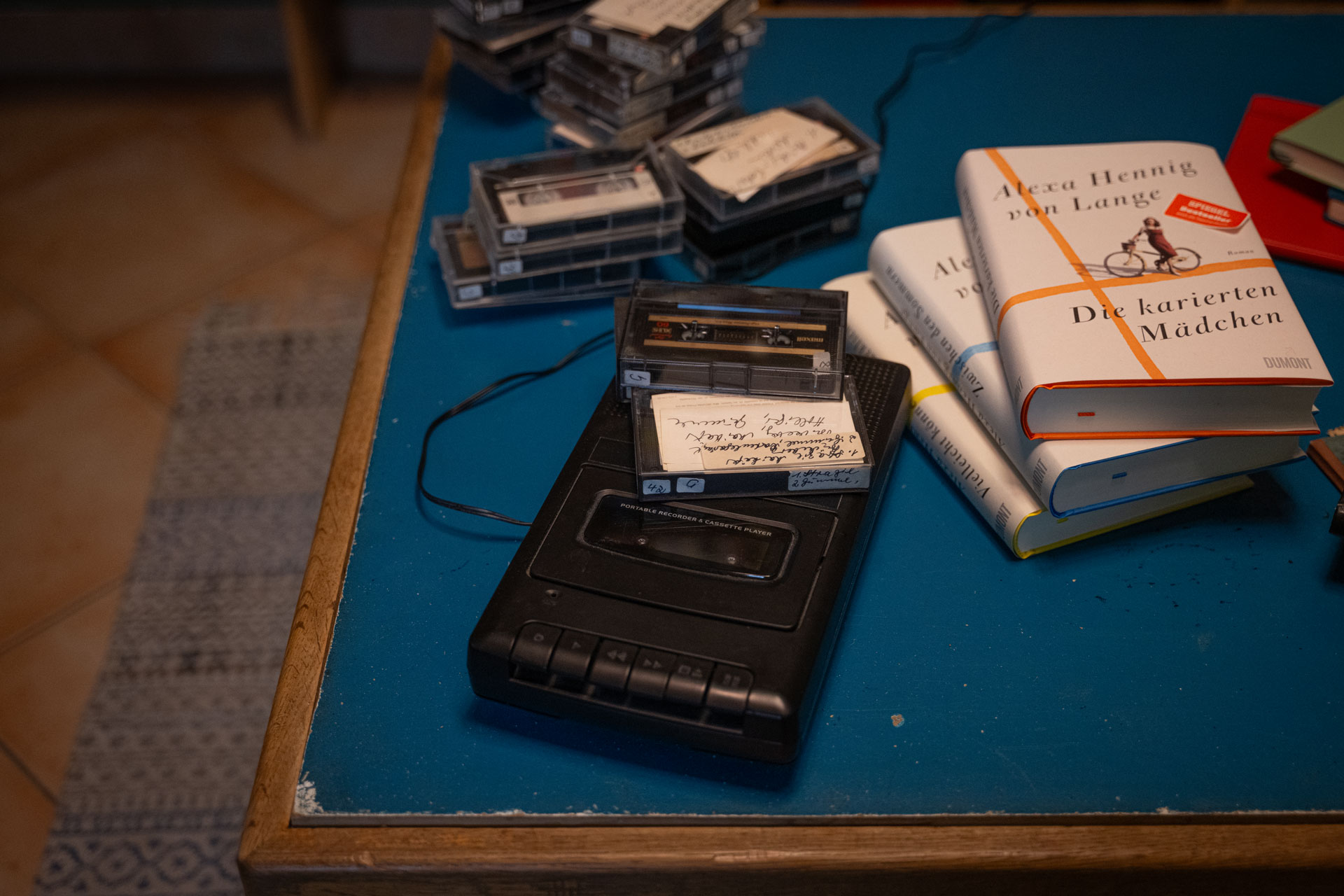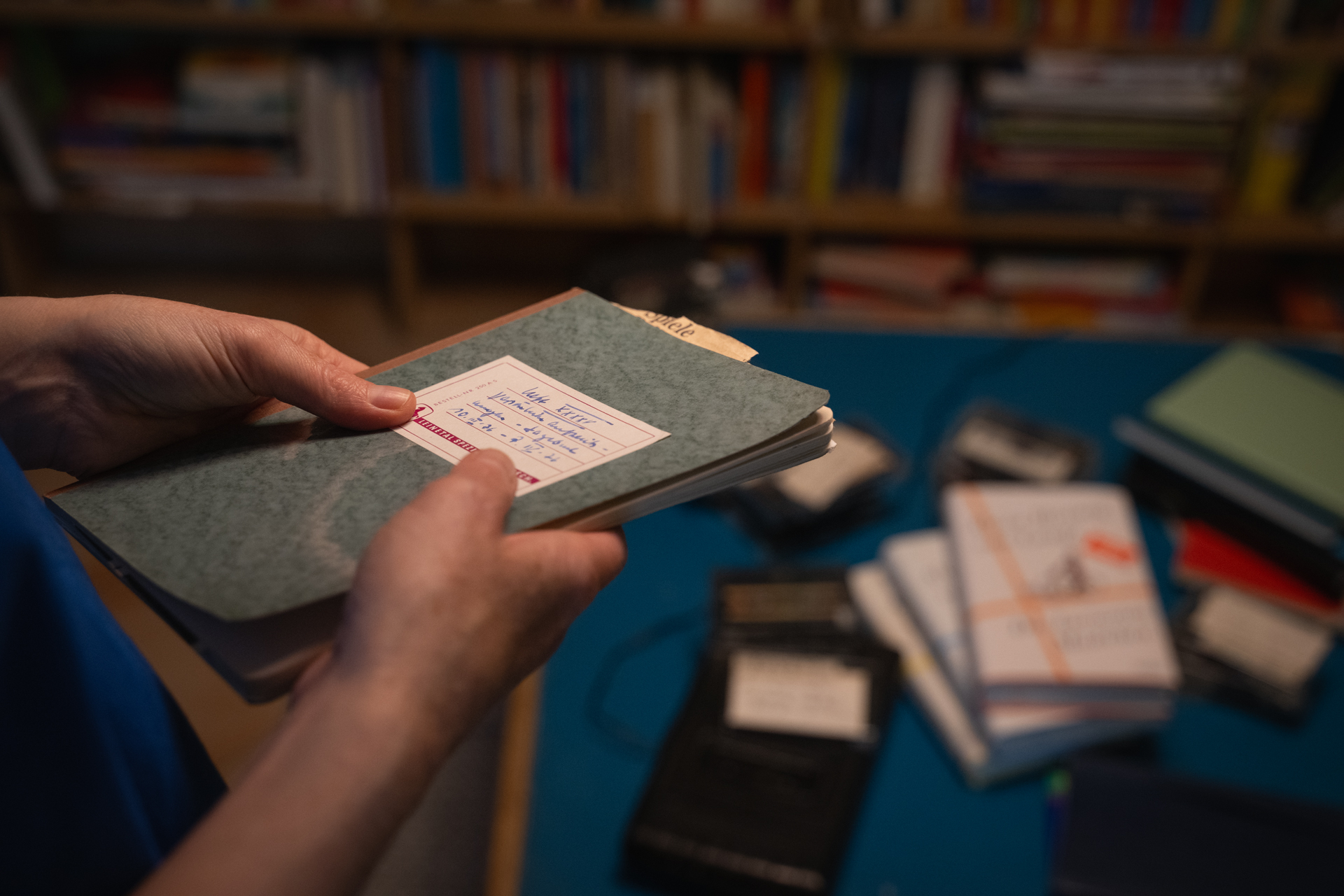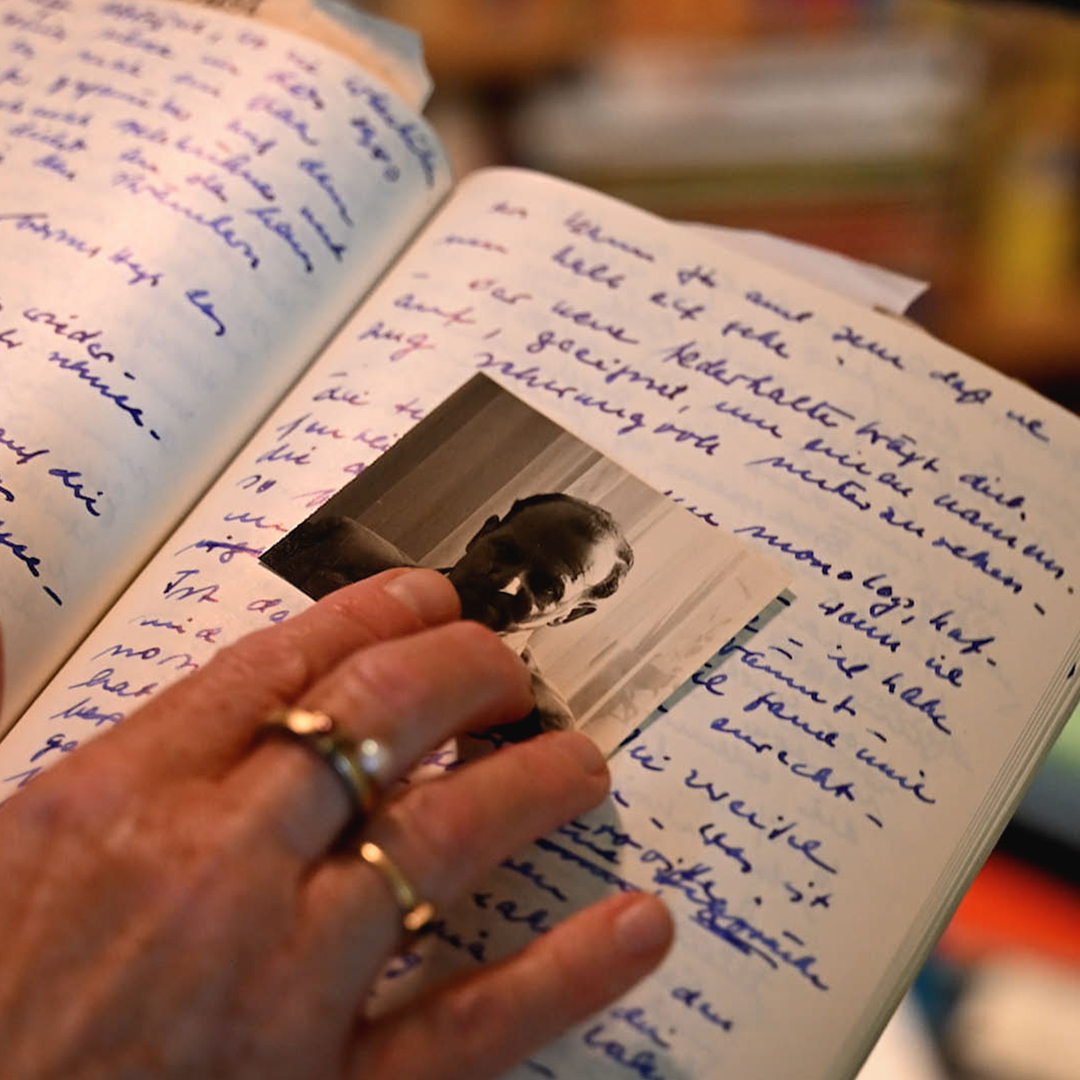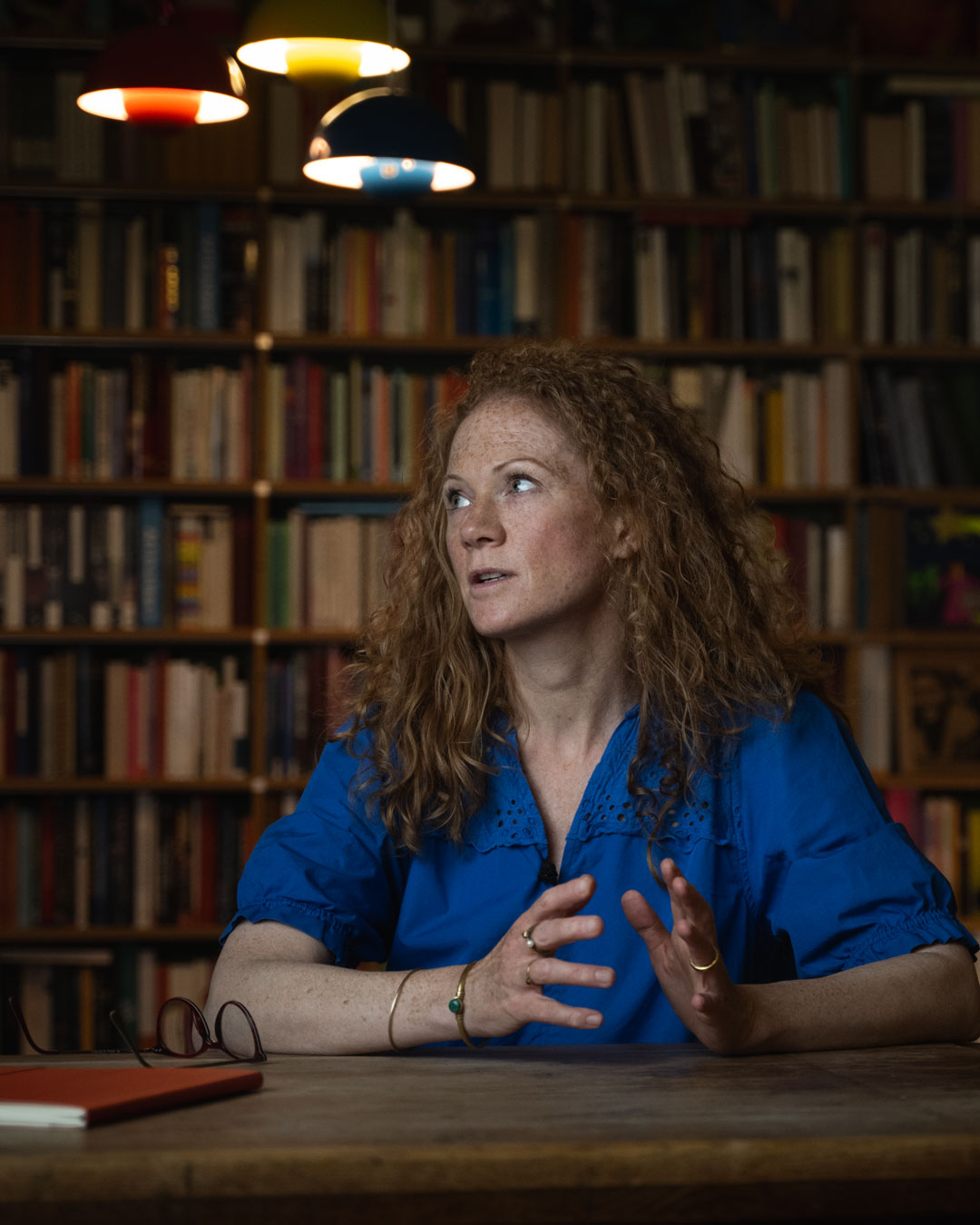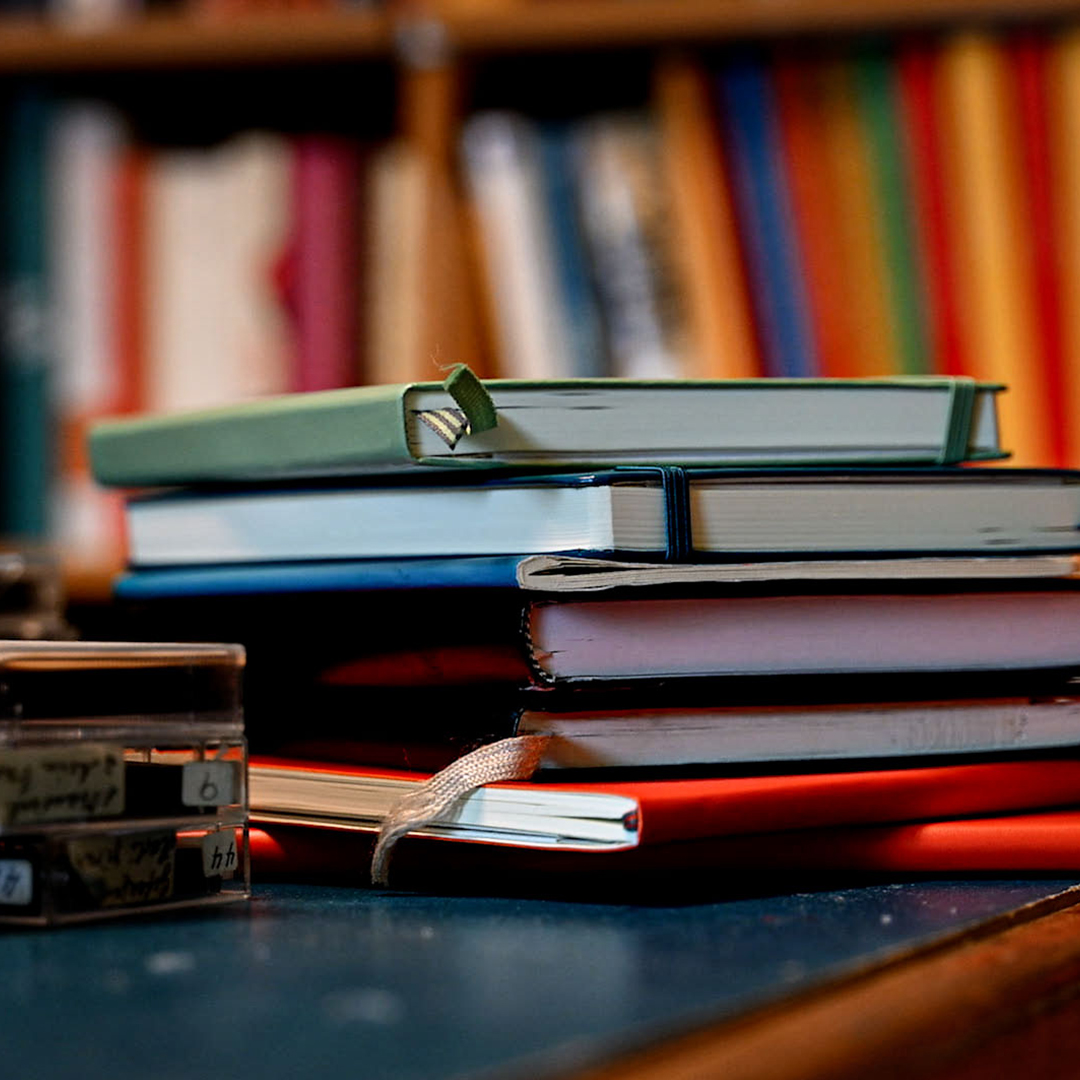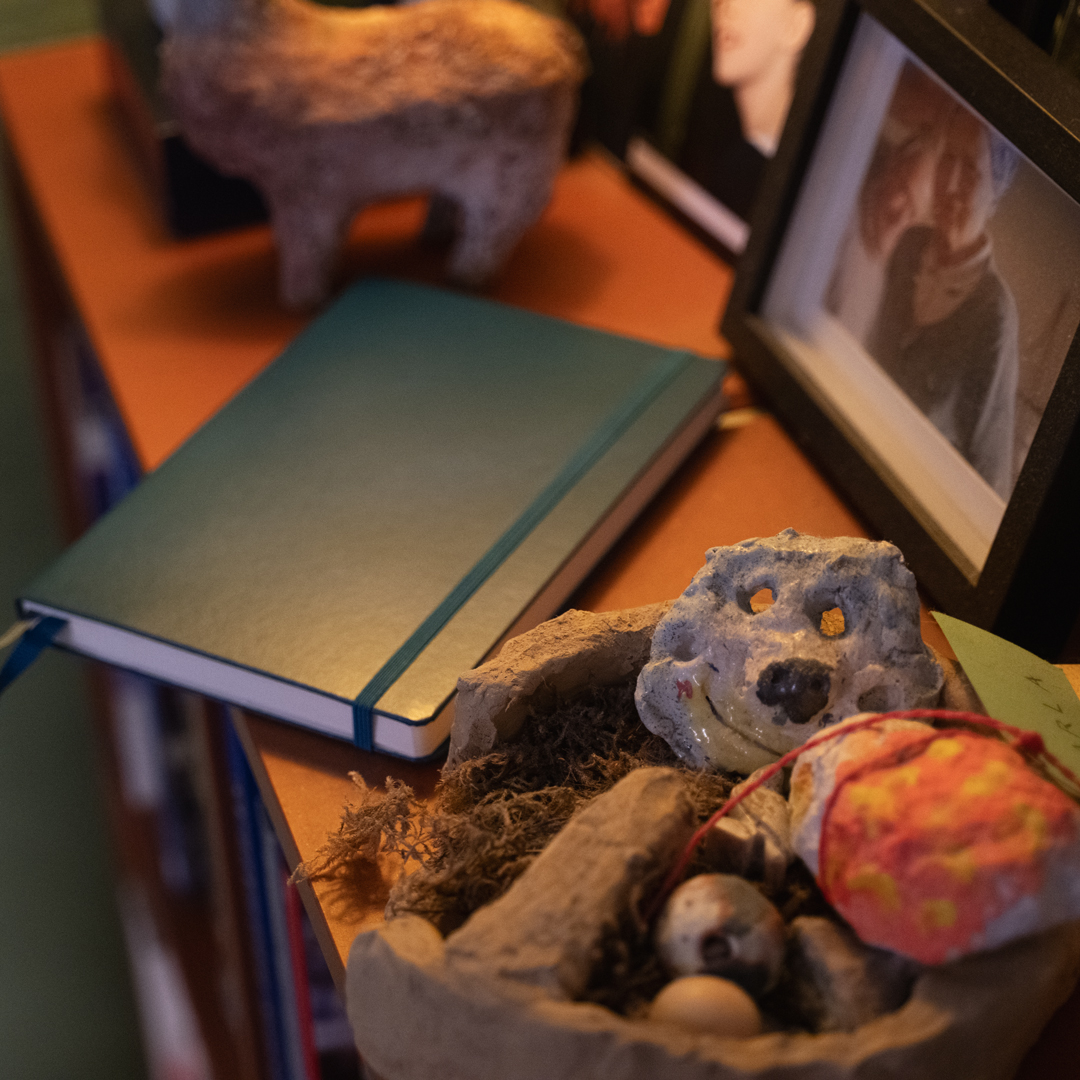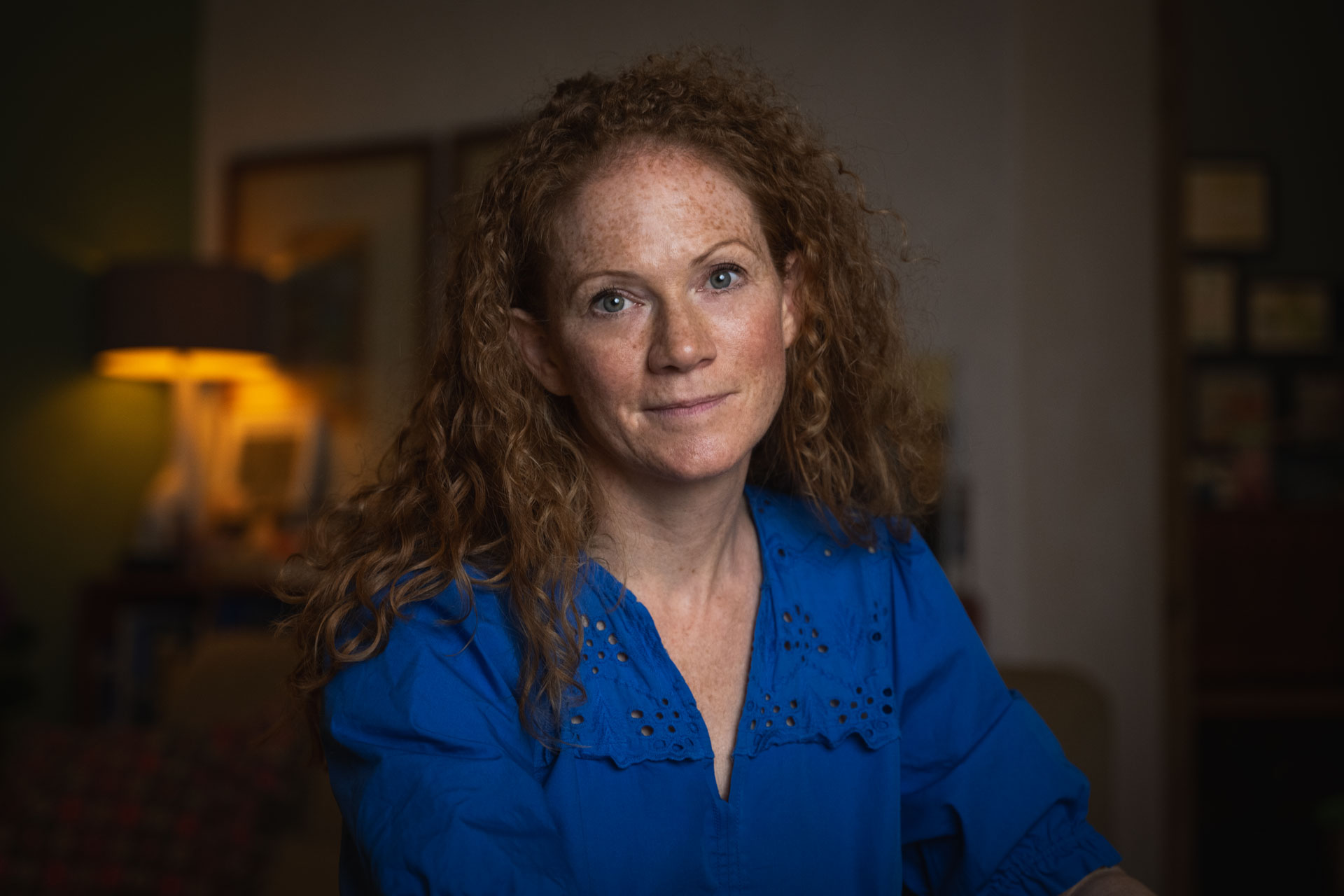Episode
Alexa Hennig von Lange // Literature and history
Write down to let go
Alexa Hennig von Lange comes from a family of chroniclers. Her grandmother dictated her life story onto tapes. Her grandfather kept diaries. The author also writes everything important in notebooks – so she rarely has to look at them afterwards
Mrs. von Lange, how do you come up with your ideas?
We have five children. That means I tidy up every day, make beds or cook. In these moments I come to rest - and often a main character appears. She starts talking, I hear her voice, and that’s the beginning of a new story.
And then?
I take the pot off the cooker and make notes.
What do you write down?
An opening image, the setting, situation, atmosphere, the first sentence. This sentence usually stands for the entire story. I can’t make it up. It just appears and I have to capture it in that moment.
Why is the beginning so important?
Nothing is closer to the truth of a book than the first impulses: scraps of thoughts, dialogues, key moments, leaps in time, reflections, the emotional state of the main character, their life situation. These impulses often contain the mood of the entire novel.
Can you give us an example?
When I started developing my Homecoming trilogy three years ago, I suddenly heard the voice of my main character Klara while I was cooking. She got off the train in Oranienbaum in 1929 and stood on the open station forecourt, surrounded by pine forest. I saw everything clearly in front of me. At that moment I knew: this is my narrator. I wrote down: “Railway station, 1929, Klara, empty, sandy forecourt, pine forest”.
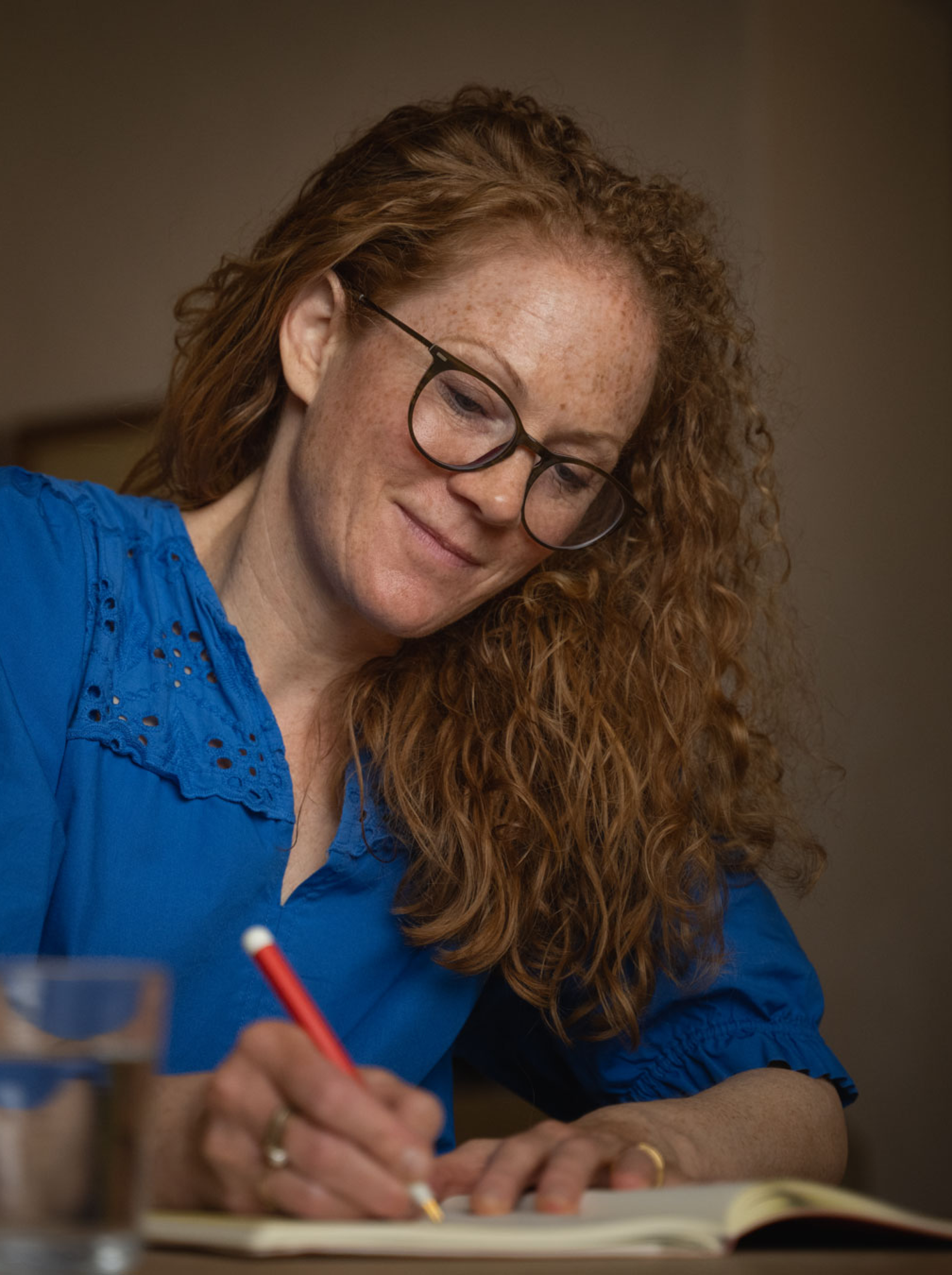
The notebook is the home for my ideas, for the original impulses.”
What makes these notes so important?
They stand for a special feeling. I only have to look at the page later and I’m immediately in the feeling I need to write. If I can’t get into that feeling, I can’t tell the story.
What do you feel when you write by hand?
Joy. Feeling the pen’s momentum on the paper, seeing how the words emerge as I write, the ease with which my hand flies over the paper. That gives me real joy.
Recording runs in your family. Your “Homecoming Trilogy” is based on your grandmother’s memories.
My grandmother recorded her entire life on cassette at a very old age, in great detail - more than 130 tapes spanning from her childhood in the imperial era to the 1960s. When we visited her as children in her terraced house in Oldenburg, we often saw her sitting in her blue armchair with a cassette recorder and a microphone in her hand.
Why didn’t she write?
She was already blind at the time.
When did you listen to the recordings?
Only years later, when I was an adult. My grandmother was a strict, distant woman. As a child, I couldn’t imagine that what she was saying could be interesting. When I listened to the tapes, I got to know her anew and discovered the person I hadn’t seen as a child. I quickly realised that I would write books based on them.
Did your grandfather also keep records?
He kept an excessive diary for decades. I also used his notes for the trilogy. He wrote closely on the pages in ink, crossed out individual words, and made corrections in red pencil. It was his way of ensuring, in hindsight, who he had been in those events.
How do audio recordings and diaries differ?
In her notes, my grandmother tended to describe the outside world, the weather, vegetation, furnishings and clothing. My grandfather tended to describe the inner world.
And what do you hold against it?
I use notes to protect my intuitions from being forgotten. I get them out of my head and onto paper to protect the original, the essence. I write down my ideas so that I can forget them afterwards. The mind is an enormously capable tool, but also a very destructive one.
What do you mean?
I can only write my books if I don’t plan them. I never know beforehand how they will end. The notes are beacons, they keep me on track when necessary. I only explore the path through the plot when I’m writing: when I experience the map of events emotionally. This keeps the storytelling lively, original and surprising.
When I look back at a note, I immediately feel the urge to write.”
Do you use a separate notebook for each novel?
No. I use my notebooks for all sorts of things. On one page there are ideas for a novel, behind it can be a shopping list, a note for the tax return or the names of friends who want to invite my children to their birthday party. I don’t want the notebook to be a work of art, but rather a novel.
Is there only ever one current notebook?
No, there are several and I always have one nearby. Sometimes I even use an opened envelope. Or the back of one of my children’s drawings - and secretly put it in the notebook later.
What happens if you lose one of these books?
That would be an absolute disaster. The notebook is the home for my ideas, for the original impulses. And they are irretrievable and valuable because everything comes from them.
How do you look after your notebooks?
I don’t throw them away, but I don’t sort them either. They just sit on the shelf. If one falls into my hand by chance when I’m tidying up, I might leaf through it. After all, they tell me what was important to me at a certain time, they provide information about my life. But I don’t use them to compare myself with the person I am today.
Why not?
Because new, exciting things are happening again today that I can make a note of.
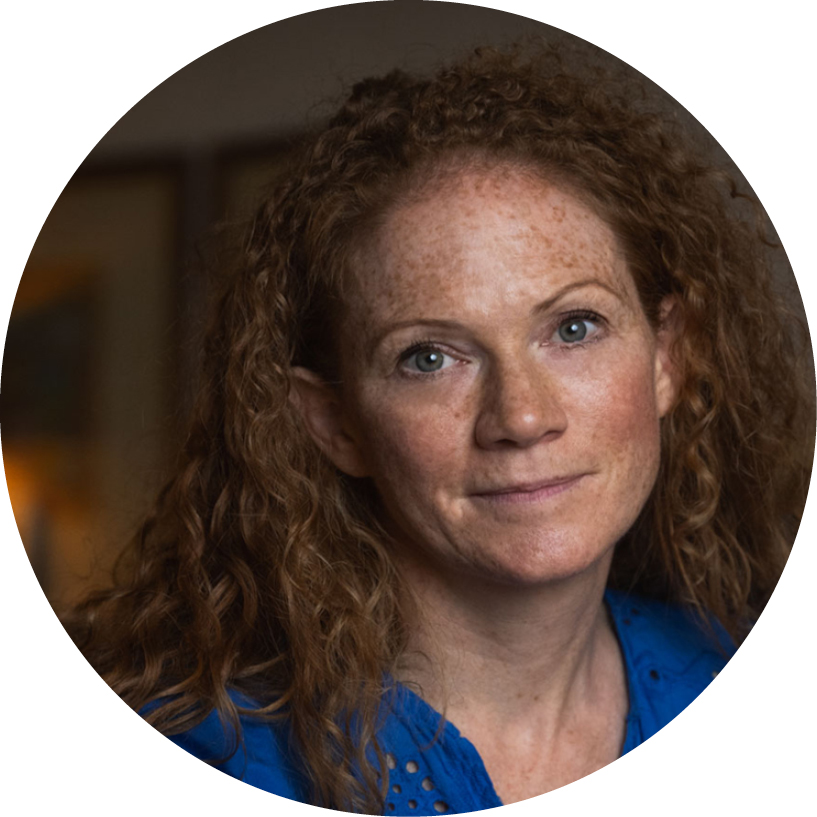
Alexa Hennig von Lange
Alexa Hennig von Lange, born in Hanover in 1973, founded pop literature in Germany at the end of the 1990s with her debut novel “Relax” and instantly became a bestselling author and one of the most important voices of her generation. Since then, she has published more than 25 novels, which have been translated into numerous languages. She has written theatre plays for the Berliner Volksbühne, the Junge Theater Göttingen and the Schauspielhaus Hannover. She was awarded the Youth Literature Prize for her novel “Ich habe einfach Glück”. Most recently, Dumont-Verlag published the “Heimkehr” trilogy, which is based on her grandmother’s memoirs. The author lives in Berlin with her husband and five children.
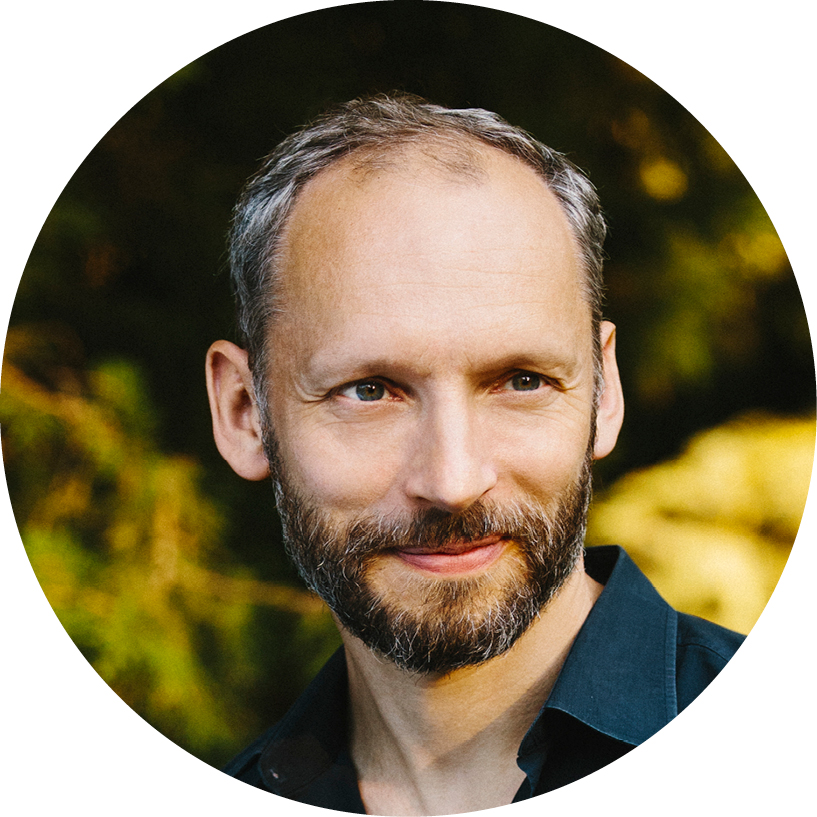
Author Marcus Jauer
Marcus Jauer is a journalist and has worked as a reporter for the “Süddeutsche Zeitung” and in the features section of the “Frankfurter Allgemeine Zeitung”. Together with Maja Göpel, he wrote the bestseller “Rethinking the World”. He works as a freelance author for “Die Zeit” and lives with his family in Berlin

